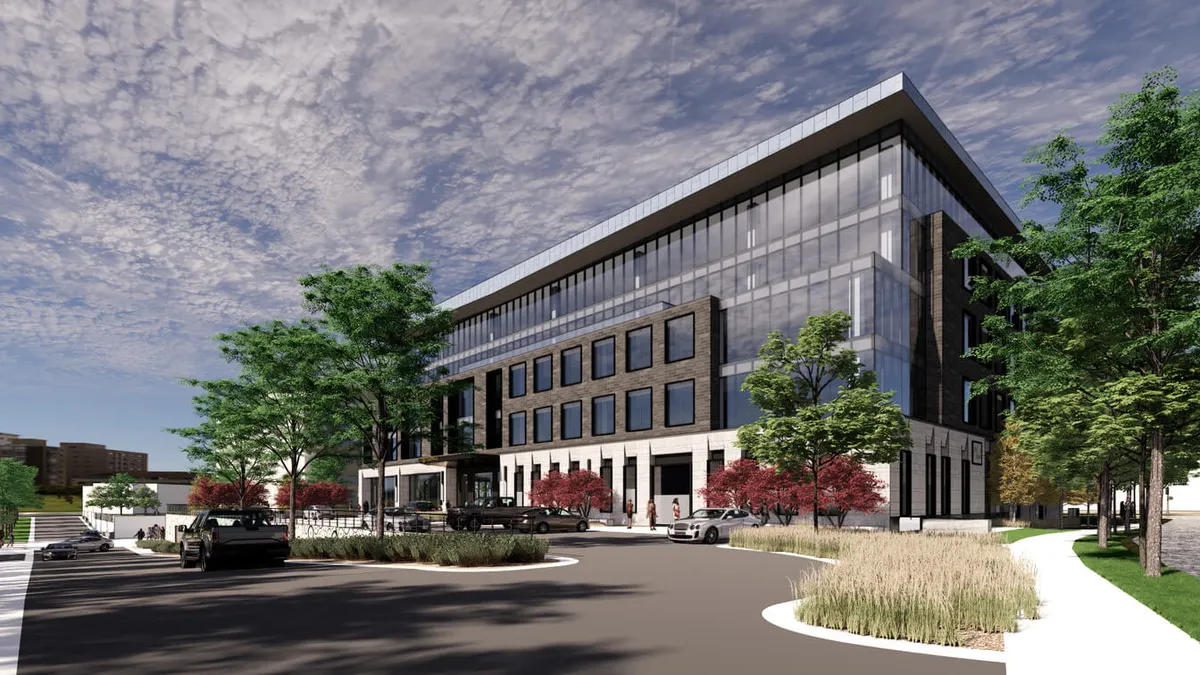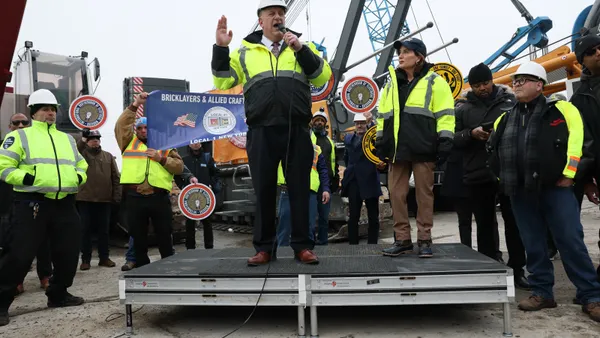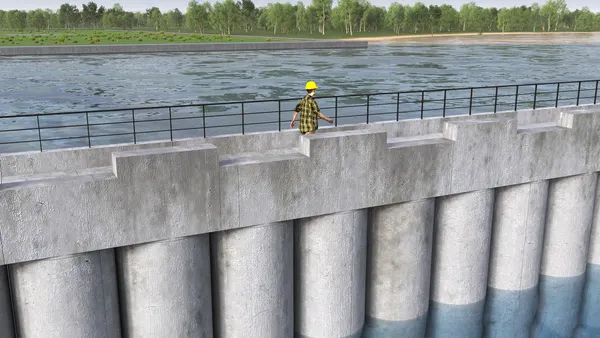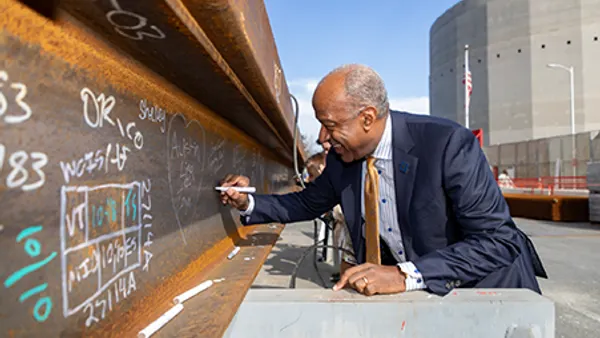Dive Brief:
-
Transportation agencies along the U.S. East Coast will start testing a per-mile driver charge system that could supplement, or even replace, the federal gas tax as the primary funding mechanism for highway projects, according to WTOP.
-
The I-95 Corridor Coalition will begin a three-month, 50-vehicle pilot next year in Pennsylvania and Delaware. CH2M Hill will supervise the initiative, which includes educating drivers on whether the gas tax will be able to address long-term infrastructure financing needs, as well as privacy considerations and payment transfers between states.
-
The $1.16 million initiative echoes a program already underway in Oregon. There, drivers pay 1.5 cents per mile in lieu of the state gas tax on a voluntary basis. In 2012, a preliminary I-95 study determined that reliance on a gas tax to fund infrastructure is "unsustainable."
Dive Insight:
Federal and state lawmakers are exploring new avenues for funding infrastructure repairs and upgrades. That is shaping up to be a massive challenge with the American Society of Civil Engineers estimating earlier this year that, at current levels, financing for such projects will come up $4.6 trillion short by 2025.
In the face of such deficits, federal and state lawmakers have been more willing to contemplate raising gas taxes, particularly in light of studies that show the public doesn't oppose them if they can reap the benefits of better roads and bridges. Federal lawmakers have also been mulling ideas for keeping the Highway Trust Fund full and have also considered charging motorists based on how many miles they drive, in addition to raising sales and tire taxes.
Transportation Secretary Elaine Chao indicated that an increase to the federal gas tax, which hasn't changed in more than 20 years, is being considered to help pay for President Donald Trump's $1 trillion infrastructure proposal. In March, Rep. Peter A. DeFazio, (D-OR), introduced a bill that said a one-cent-per-year increase in the federal gas tax could add $17 billion annually in highway funding.
States have also increased their own gas taxes to help pay for large infrastructure initiatives. In April, California lawmakers approved a 12-cent-per-gallon increase in the state's gas tax, along with more vehicle fees, to help pay for a $52 billion infrastructure spending program. The state will use the funds to tackle its estimated $130 billion backlog of infrastructure repairs.














